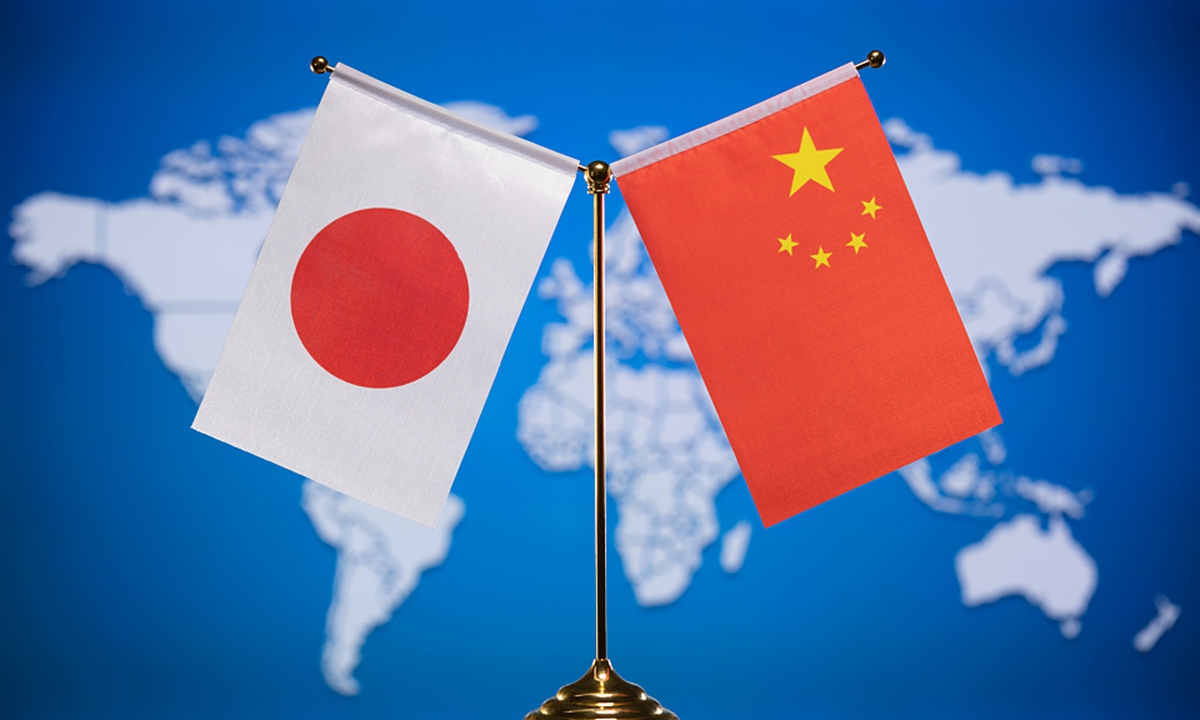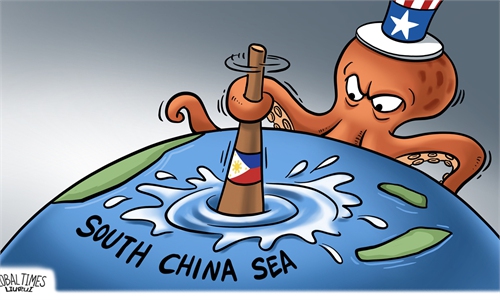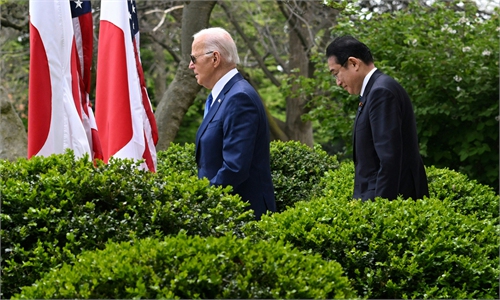Japan's contradictory China policy: 'mutually beneficial' ties vs 'strategic challenges'

Photo: VCG
On Tuesday, the Japanese Foreign Ministry published its Diplomatic Bluebook for 2024. A notable feature of this edition is the reinstatement of the phrase "mutually beneficial relationship based on common strategic interests" for the first time in five years since the 2019 edition. At the same time, the document follows the positioning toward China in the new Japanese National Security Strategy released at the end of 2022, emphasizing that China poses "an unprecedented and the greatest strategic challenge." Japan stresses the "mutually beneficial relationship based on common strategic interests" while also portraying China as bringing the "greatest strategic challenges," highlighting the contradictory and two-faced nature of its policy toward China.
President Xi Jinping and Japanese Prime Minister Fumio Kishida met in San Francisco in November 2023, reaffirming their commitment to comprehensively advancing the strategic and mutually beneficial relations between China and Japan. This meeting has provided important political guidance for the improvement and development of bilateral relations. The latest edition of the Japanese Diplomatic Bluebook reiterates the "mutually beneficial relationship based on common strategic interests," essentially following the consensus reached by the leaders of the two countries.
Why does Japan emphasize the "Japan-China mutually beneficial relationship based on common strategic interests"? Firstly, a pattern of mutual benefits has already been established in the long-term development of China-Japan relations, ensuring stability and alignment with Japan's national interests. This also meets the needs of the Kishida government to promote its diplomatic achievements with China. Secondly, there is growing anxiety and even fear in various sectors of Japan about the potential return of Donald Trump to the White House at the end of this year. To mitigate the risk of the Japan-US alliance being weakened by Trump, Japan is strategically maintaining flexibility in its relations with China by emphasizing the "Japan-China mutually beneficial relationship based on common strategic interests," signaling to China that Japan is balancing between China and the US and fostering goodwill.
However, at the same time, Japan's Diplomatic Bluebook for 2024 is once again full of cliches, continuing to use the wording about China that the Japanese government has used in recent years. It positions China's military trends as the greatest strategic challenge ever faced, mentioning "serious concerns" over China's "attempts to unilaterally alter the status quo" and "a series of dangerous acts" in the South China Sea. The 2024 Diplomatic Bluebook also reaffirmed Japan's commitment to working with allies and like-minded nations to counter regional challenges effectively.
Over the years, Japanese politicians and media have relentlessly exaggerated and hyped up the "China threat" and stepped up the country's strategic ties with the US. Their main calculations are as follows. First, Japan uses the "China threat" as a guise to hype up the complexity and severity of its own external security environment, thereby "rationalizing" and "legitimizing" its dangerous actions such as amending the constitution, expanding its military and abandoning its self-defense stance. Second, Japan believes that China's development and growth are squeezing its survival and strategic space. Therefore, while strengthening all-round cooperation with regional countries, Japan launches an international public opinion offensive against China, thereby strengthening its regional presence and discourse power to hedge against China's regional influence.
Third, Japan believes that the power gap between China and the US has been shrinking in recent years, so it has played an active role in assisting the US to outcompete China. Fourth, by coordinating the US' Indo-Pacific Strategy, Japan plans to develop the Japan-US global partnership, cooperate with the US in shaping the geostrategic environment around China, facilitate the Japanese Self-Defense Forces to expand the scope of overseas activities and promote Japan's military buildup.
History has repeatedly proven that the stable development of China-Japan relations not only benefits the two peoples, but also makes contributions to the long-term stability and prosperity of the Asia-Pacific region, which is in line with the common aspirations of the people of all countries in the region. Japan should do things conducive to the development of bilateral relations and maintain peace and stability in the Asia-Pacific, avoiding militarism and the misguided path of beggar-thy-neighbor policies.
The author is a research assistant at the Department for Asia-Pacific Studies, China Institute of International Studies. opinion@globaltimes.com.cn



